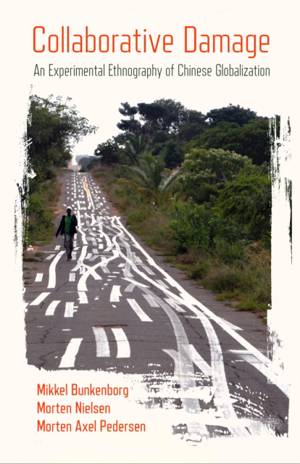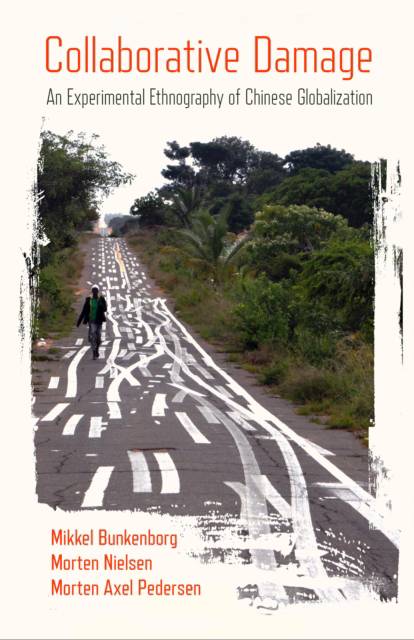
- Retrait gratuit dans votre magasin Club
- 7.000.000 titres dans notre catalogue
- Payer en toute sécurité
- Toujours un magasin près de chez vous
- Retrait gratuit dans votre magasin Club
- 7.000.0000 titres dans notre catalogue
- Payer en toute sécurité
- Toujours un magasin près de chez vous
Collaborative Damage
An Experimental Ethnography of Chinese Globalization
Mikkel Bunkenborg, Morten Nielsen, Morten Axel PedersenDescription
Collaborative Damage is an experimental ethnography of Chinese globalization that compares data from two frontlines of China's global intervention--sub-Saharan Africa and Inner/Central Asia. Based on their fieldwork on Chinese infrastructure and resource-extraction projects in Mozambique and Mongolia, Mikkel Bunkenborg, Morten Nielsen, and Morten Axel Pedersen provide new empirical insights into neocolonialism and Sinophobia in the Global South.
The core argument in Collaborative Damage is that the different participants studied in the globalization processes--local workers and cadres; Chinese managers and entrepreneurs; and the authors themselves, three Danish anthropologists--are intimately linked in paradoxical partnerships of mutual incomprehension. The authors call this "collaborative damage," which crucially refers not only to the misunderstandings and conflicts they observed in the field, but also to their own failure to agree about how to interpret the data. Via in-depth case studies and tragicomical tales of friendship, antagonism, irresolvable differences, and carefully maintained indifferences across disparate Sino-local worlds in Africa and Asia, Collaborative Damage tells a wide-ranging story of Chinese globalization in the twenty-first century.
Spécifications
Parties prenantes
- Auteur(s) :
- Editeur:
Contenu
- Nombre de pages :
- 294
- Langue:
- Anglais
Caractéristiques
- EAN:
- 9781501759802
- Date de parution :
- 15-02-22
- Format:
- Livre relié
- Format numérique:
- Genaaid
- Dimensions :
- 152 mm x 229 mm
- Poids :
- 603 g

Les avis
Nous publions uniquement les avis qui respectent les conditions requises. Consultez nos conditions pour les avis.






